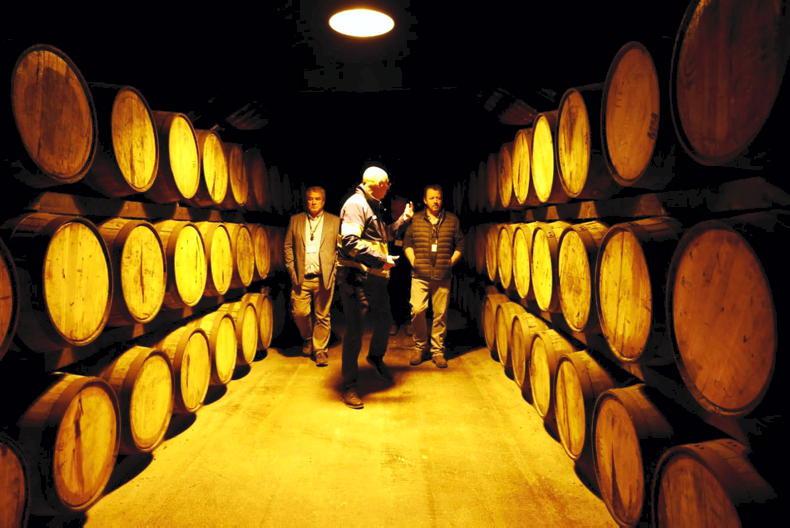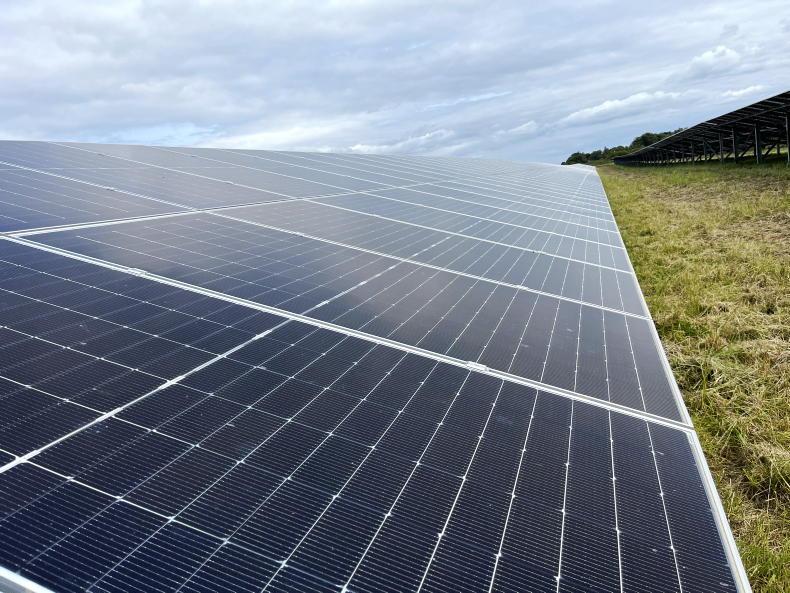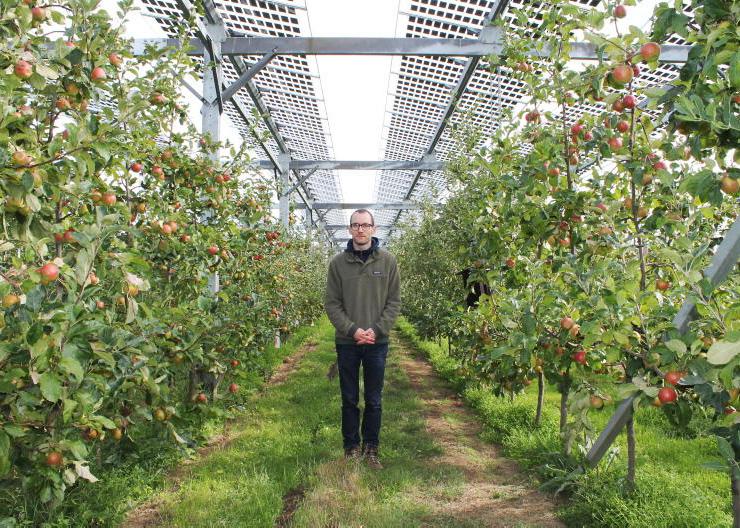The Irish Farmers Journal understands that the Irish Farmers Association (IFA) and Bord Gais are set to partner up on a new solar energy pilot project that will spearhead solar energy generation on all farms, regardless of size, geography or sector.
The initiative will begin with a proof of concept project with a small number of farms over the next year.
In this, farmers will harness the power of the sun to reduce input costs on the farm, and even if the energy is not being used on the farm where it is generated, then it would be possible to sell it back to the grid.
Interestingly, if the pilot is successful, then the ultimate goal would be to trade energy between farmers.
This would allow beef and sheep farmers who may not have a high energy requirement on farm to participate in the solar generation space and get rewarded for it.
The proposal will be open to all farmers and there are three key goals – reduce the cost of inputs for farmers, further improve the environmental contribution from farmers by reducing the carbon footprint of energy used on farms, and potentially create a new revenue stream for farmers.
Proof of concept
Step one in this new project is to set up a proof of concept group with 20 farms from across Ireland.
It will be a multi-sector undertaking with variations in farm size and geography and will be based initially on a self-use model.
The goal is that eventually farmers in this virtual entity or community will be able to trade with each other.
If this gets up and running then it becomes a self-fulfilling model and can grow and develop naturally.
It is understood that the IFA is keen that the return on investment for farmers who invest in solar panels is in the five- to six-year time frame rather than 15 years where it is at the moment.
This type of investment needs specific grant aid up front to make it a reality and also Government backing on tariffs and rates to make this sustainable and predictable.
Read more
ICOS calls on An Taisce to reverse High Court appeal on Glanbia plant
McConalogue called on to increase REAP budget to meet demand
The Irish Farmers Journal understands that the Irish Farmers Association (IFA) and Bord Gais are set to partner up on a new solar energy pilot project that will spearhead solar energy generation on all farms, regardless of size, geography or sector.
The initiative will begin with a proof of concept project with a small number of farms over the next year.
In this, farmers will harness the power of the sun to reduce input costs on the farm, and even if the energy is not being used on the farm where it is generated, then it would be possible to sell it back to the grid.
Interestingly, if the pilot is successful, then the ultimate goal would be to trade energy between farmers.
This would allow beef and sheep farmers who may not have a high energy requirement on farm to participate in the solar generation space and get rewarded for it.
The proposal will be open to all farmers and there are three key goals – reduce the cost of inputs for farmers, further improve the environmental contribution from farmers by reducing the carbon footprint of energy used on farms, and potentially create a new revenue stream for farmers.
Proof of concept
Step one in this new project is to set up a proof of concept group with 20 farms from across Ireland.
It will be a multi-sector undertaking with variations in farm size and geography and will be based initially on a self-use model.
The goal is that eventually farmers in this virtual entity or community will be able to trade with each other.
If this gets up and running then it becomes a self-fulfilling model and can grow and develop naturally.
It is understood that the IFA is keen that the return on investment for farmers who invest in solar panels is in the five- to six-year time frame rather than 15 years where it is at the moment.
This type of investment needs specific grant aid up front to make it a reality and also Government backing on tariffs and rates to make this sustainable and predictable.
Read more
ICOS calls on An Taisce to reverse High Court appeal on Glanbia plant
McConalogue called on to increase REAP budget to meet demand









SHARING OPTIONS